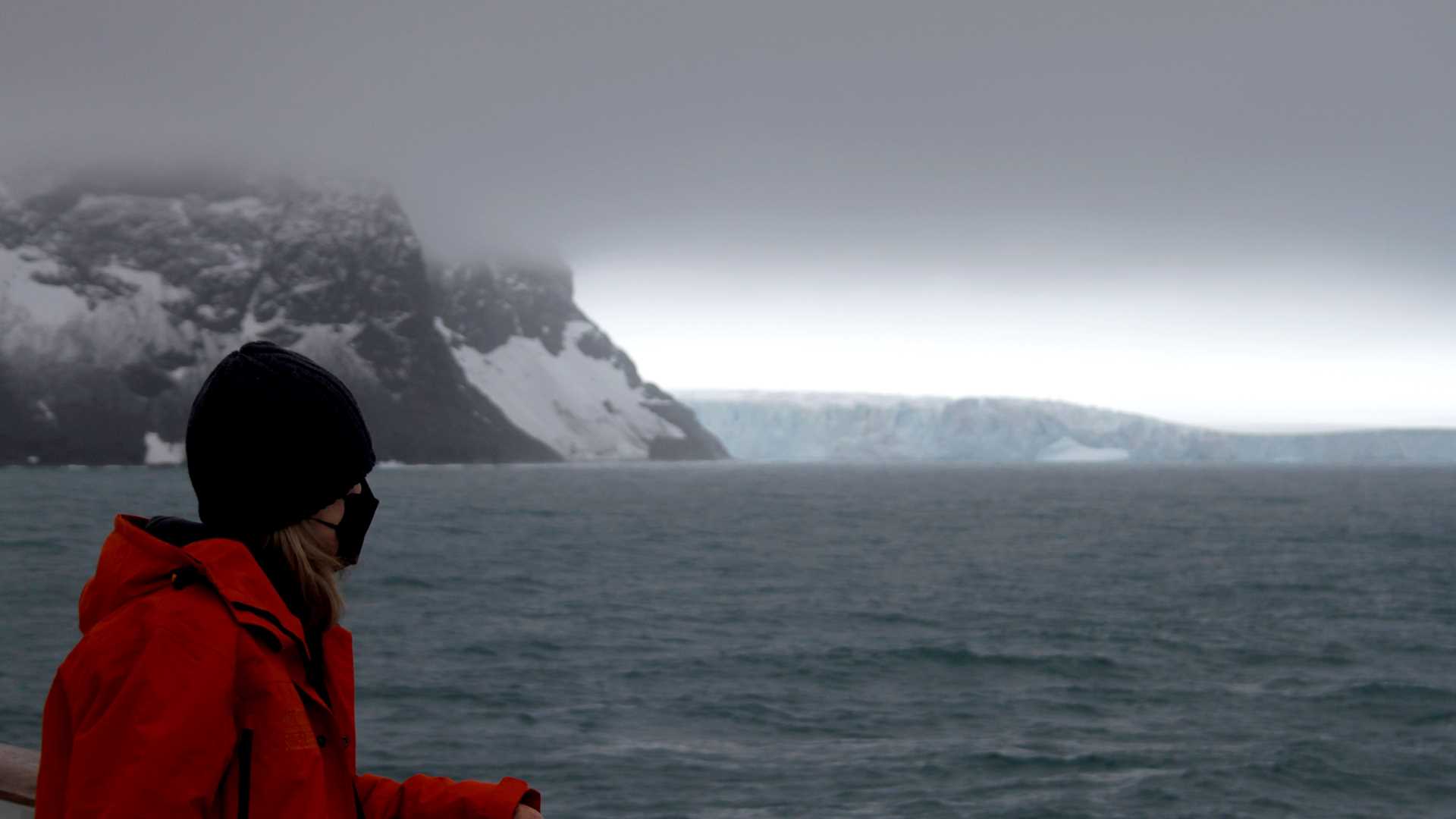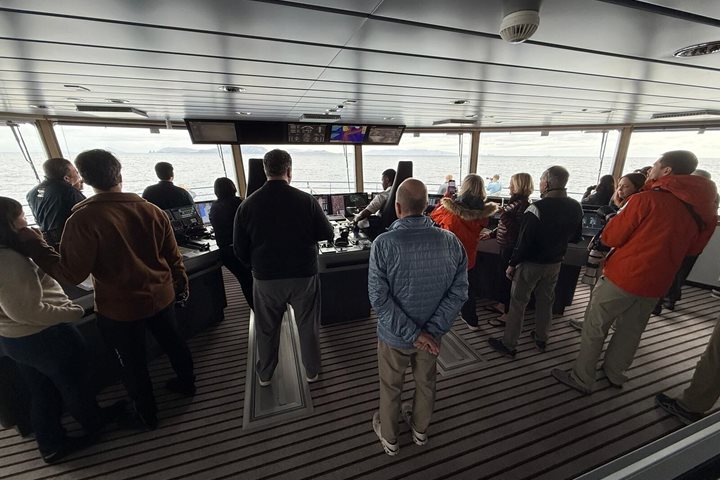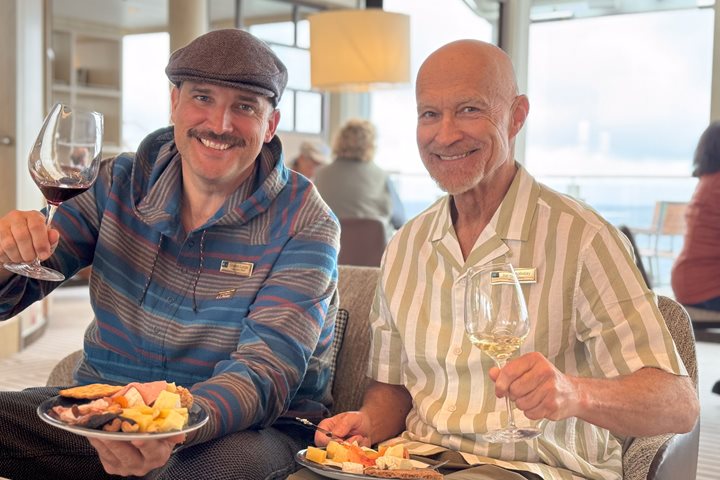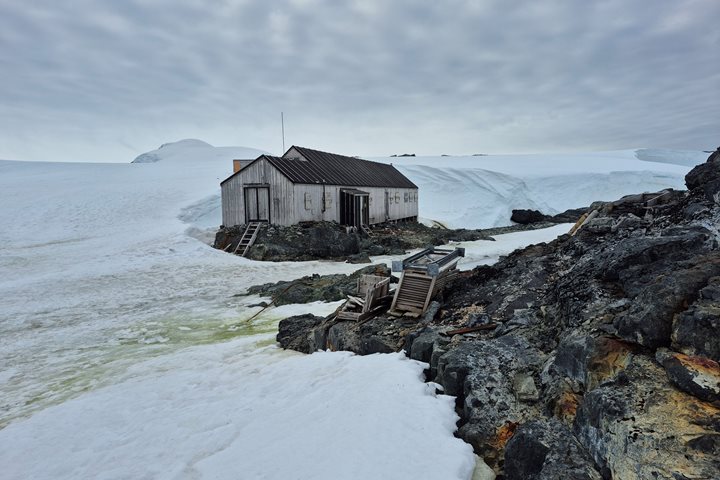There are many words to describe the scenery of the Antarctic islands: dramatic, extreme and foreboding come to mind. All of these adjectives illustrated the South Orkney Islands this morning. With a stiff wind astern, we surveyed the shoreline and looked for a suitable landing site for morning operations. Massive glaciers added a bright feature to the otherwise monochromatic palette of the landscape before us. On the beaches and in the sea, we spotted fur and elephant seals. The seals looked up toward those observers resilient enough to brave the conditions on deck. The seas lent an air of drama to our morning, but these same forces restricted us from landing on the South Orkneys. We cruised up their western edge and set our course for South Georgia.
En route, there was much to behold. Massive icebergs sailed along the horizon. One iceberg with a particularly compelling arch drew us in for close looks and photographic opportunities. These ships of ice show but a fraction of themselves. The enormous icebergs parade the Southern Ocean as they break into increasingly smaller pieces, eventually dissolving from their former majesty into mere seawater.
North of the islands, we encountered a fleet of krill-fishing boats. These trawlers often indicate the presence of whales, since the crews are fishing for the very food the whales depend upon. As we passed by the fleet, fin whales surfaced in almost every direction. Hundreds, potentially thousands, of pelagic seabirds circled the boats and us in turn. It was impressive to behold such a huge amount of wildlife in the middle of a gray and seemingly lifeless ocean.
When we returned to the ship, we continued with our educational programs. Our natural history staff presented about Frank Hurley, an expedition photographer from Shackleton’s fateful voyage. We learned about the fossils of the Antarctic, which gave us a glimpse into the history of the lands we have visited. Many a ship has gone down in these icy seas, and a presentation covered the exciting opportunities for marine archaeology in this area. Throughout the day, seabirds sailed by and whales passed.
Days at sea are not simply days in transit. Wildlife abounds in these productive waters, and the ocean holds its own compelling story. We look forward to landing in South Georgia, yet we know the voyage is a destination as well.







